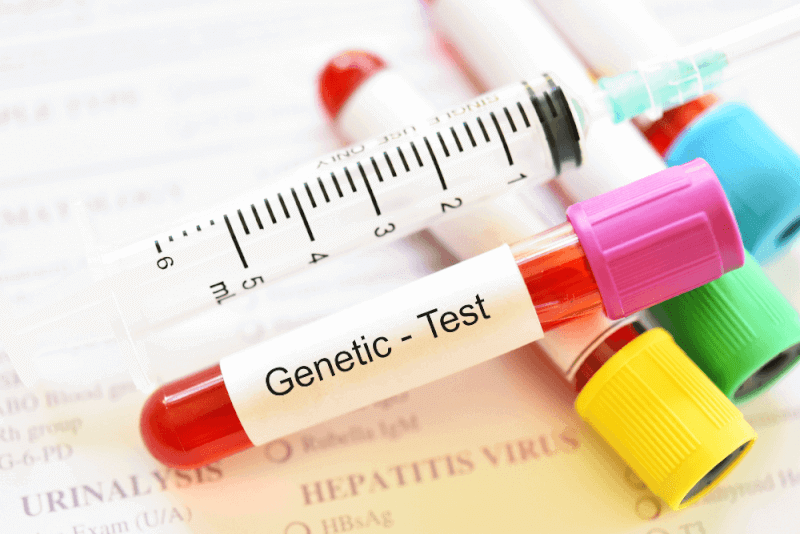What is the Pituitary Gland?
The pituitary gland, located at the base of the brain below the hypothalamus, is a pea-sized structure. It is situated in a special chamber called the Sella Turcica. It is also known as the master gland of the endocrine system because the pituitary gland directs other endocrine glands to release hormones.
Glands are organs that produce one or more substances such as digestive fluids, hormones, tears, or sweat. Endocrine glands are responsible for releasing hormones directly into the bloodstream. Hormones are chemicals that carry messages through the blood to various organs, tissues, muscles, and skin, coordinating different functions of the body. These signals tell the body what to do and when to do it.
The pituitary gland is divided into two main parts. The anterior pituitary is also called the anterior lobe. The other part is the posterior pituitary, also known as the posterior lobe. The pituitary gland is connected to the hypothalamus via the pituitary stalk, which consists of blood vessels and nerve networks.
Where is the Pituitary Gland Located?
The pituitary gland is located at the base of the skull and below the brain. It is situated in a hollow above the bridge of the nose, also known as the Turkish saddle or Sella Turcica, which is the chamber where the pituitary gland resides.
Pituitary Gland Hormones
Due to the different parts of the pituitary gland, the hormones it secretes vary according to the lobes. The hormones secreted from the anterior lobe of the pituitary gland include:
Adrenocorticotropic Hormone (ACTH or Corticotropic)
This hormone generally determines how the body responds to stress. Other functions of the hormone include:
- Stimulating the adrenal glands to produce the stress hormone
- The stress hormone regulates metabolism, maintains blood pressure, controls blood sugar levels, and reduces inflammation.
Follicle-Stimulating Hormone (FSH)
Also known as a gonadotropic hormone, this hormone plays a role in sperm production in men and egg development in women.
Growth Hormone (GH)
Growth hormone promotes growth in children, helping them grow taller. In adults, it helps maintain healthy muscles and bones and influences fat distribution. Growth hormone also affects metabolism, helping the body convert food into energy.
Luteinizing Hormone (LH)
As a gonadotropic hormone, LH stimulates ovulation in women and testosterone production in men.
Prolactin
Prolactin is responsible for milk production after childbirth. It can also affect fertility and sexual functions in adults.
Thyroid-Stimulating Hormone (TSH)
TSH stimulates the thyroid gland to produce hormones that regulate the nervous system, energy levels, and metabolism.
The posterior lobe of the pituitary gland is responsible for storing and releasing various hormones produced by the hypothalamus.
Antidiuretic Hormone (ADH or Vasopressin)
ADH regulates the body's water balance and sodium levels.
Oxytocin
Oxytocin helps progress labor by signaling uterine contractions during childbirth and promotes milk flow. It also influences the bond between mother and baby and plays a role in sperm movement in men.
Diseases of the Pituitary Gland
Conditions directly affecting the pituitary gland fall into three main categories:
- Conditions causing the pituitary gland to produce too much of one or more hormones
- Conditions causing the pituitary gland to produce too little of one or more hormones
- Conditions causing changes in the size or shape of the pituitary gland
Health issues in the pituitary gland can be classified into the three forms mentioned above. Common pituitary gland health issues include:
Pituitary Adenomas
Benign growths in the pituitary gland are called pituitary adenomas. They constitute about 10% to 15% of tumors that develop in the skull. Pituitary adenomas typically grow slowly but can press on nearby structures as they increase in size, causing various symptoms. They can also compress the optic nerve, leading to vision problems. Large pituitary adenomas can sometimes cause internal bleeding.
Some pituitary adenomas cause excessive hormone production and are called functioning adenomas, while others do not produce hormones and are called non-functioning adenomas. Functioning pituitary adenomas are classified into several types based on the hormone they secrete. The most common functioning adenoma is a prolactinoma, which secretes excessive prolactin and is typically treated with medication. However, very large or hormone-secreting pituitary tumors are usually treated with surgery.
Excessive Pituitary Secretion
Hyperpituitarism occurs when the pituitary gland produces too much of one or more hormones, often due to functioning pituitary adenomas. Specific conditions involving excess pituitary hormone include:
Acromegaly
Acromegaly occurs when too much growth hormone is secreted in adults, causing enlargement of certain parts of the body such as the hands, feet, and organs, and leading to metabolic issues.
Gigantism
Gigantism occurs when too much growth hormone is secreted during childhood or adolescence, causing rapid growth and excessive height.
Cushing's Disease
Cushing's disease occurs when the pituitary gland secretes too much ACTH, leading to excessive cortisol production by the adrenal gland, causing rapid weight gain in specific areas of the body and high blood sugar levels that can develop into type 2 diabetes.
Hyperprolactinemia
Hyperprolactinemia occurs when the pituitary gland produces too much prolactin, causing infertility and milky discharge from the nipples.
Pituitary Insufficiency
Hypopituitarism is a condition where the pituitary gland produces insufficient amounts of one or more hormones. When two or more pituitary hormones are deficient, it is called panhypopituitarism. This condition is often seen after pituitary surgery or brain radiation.
Pituitary hormone deficiencies are usually due to some damage to the pituitary gland or hypothalamus. Specific conditions involving pituitary hormone deficiencies include:
Growth Hormone Deficiency
This condition occurs when the pituitary gland does not produce enough growth hormone. It causes growth and development delays in children and metabolic issues in adults.
Central Diabetes Insipidus
Central diabetes insipidus occurs when the pituitary gland does not produce enough antidiuretic hormone, leading to excessive urination and an inability to retain enough water in the body.
Central Hypogonadism
Central hypogonadism occurs when the pituitary gland does not produce enough luteinizing hormone and follicle-stimulating hormone, leading to issues with sexual function, development, and fertility.
Central Adrenal Insufficiency
Central adrenal insufficiency occurs when the pituitary gland does not produce enough ACTH, leading to an inability to produce sufficient adrenal hormones.
Central Hypothyroidism
Central hypothyroidism occurs when the pituitary gland does not produce enough thyroid-stimulating hormone, resulting in low thyroid hormone levels.
The treatment for conditions caused by low pituitary hormone production involves hormone replacement therapy. Patients are monitored with blood tests during treatment.
Empty Sella Syndrome
ESS is a condition where the pituitary gland shrinks or becomes irregular due to issues with the Sella Turcica, the bony structure surrounding and protecting the gland. Although rare, it often does not develop into a real medical condition and is frequently discovered incidentally during imaging.
In some cases, ESS can cause symptoms such as hormonal imbalances, vision changes, and headaches. However, if pituitary hormone levels are normal, there is usually no cause for concern.
Symptoms of Pituitary Gland Problems
Non-cancerous tumors in the pituitary gland that develop to large sizes can press on nearby tissues, causing damage. Symptoms include:
- Vision problems
- Headaches
- Hormonal imbalances due to excess or deficiency of pituitary hormones
Hormonal imbalances in the pituitary gland can cause various symptoms depending on the hormone affected, including:
- Growth deficiency or excessive growth in children
- Infertility
- Irregular menstrual periods
- Unexplained weight gain or weight loss
- Depression
- Anxiety
How to Strengthen the Pituitary Gland?
If there is any issue with the pituitary gland, it is important to seek medical assistance first. If a problem related to the pituitary gland is suspected, consult a doctor and treat any underlying conditions. In some cases, hormone replacement therapy is necessary, while in others, surgery or radiotherapy may be required. However, many cases do not need medical intervention and can be managed with dietary changes. Dietary adjustments include:
Reducing Sugar Intake
To balance the pituitary gland, it is necessary to eliminate sugary foods from the diet. Choose fresh natural products over processed foods and read labels carefully. Avoid foods containing hidden sugars such as corn fructose. Excessive sugar and refined carbohydrate intake disrupts growth hormone production and causes inflammation in the nervous system.
Increasing Protein Intake
Protein intake should constitute 10% to 35% of daily total calories. Calculate the amount to ensure sufficient protein intake, as the pituitary gland uses protein for hormone production.
Avoid Large Meals Before Bed
The pituitary gland is activated during sleep to secrete a high amount of beneficial hormones. Avoid heavy meals, especially those high in carbohydrates, at least two hours before bedtime.
Consume More Vitamins D, E, and A
These vitamins, which remove free radicals and harmful chemicals, promote hormone production. They can be taken as supplements or through natural foods.
Manganese Intake
Manganese, found in legumes and leafy green vegetables, helps store minerals in the pituitary gland and provides significant antioxidant benefits.
After adjusting the diet, making lifestyle changes can also help the pituitary gland function more efficiently. These changes include:
Reducing Stress
The body produces cortisol during stressful situations. Excessive cortisol disrupts the entire hormonal balance and damages the pituitary and adrenal glands. Therefore, it is important to reduce stress levels.
Getting Enough Sleep
The pituitary gland works at its maximum level at night and during sleep. Ensure sufficient sleep duration. Avoid consuming caffeine late in the day or looking at blue screens like phones before bed to help improve sleep quality.
Exercising
Increasing heart rate through exercise helps the body function more efficiently and balance hormone production. While high-intensity exercise is not necessary, raising the heart rate for 30 minutes at least three times a week is sufficient.
Maintaining a Healthy Weight
Being overweight can disrupt pituitary gland production, causing it to produce some hormones excessively and others insufficiently, such as growth hormone. Therefore, it is important to maintain an ideal weight.
Pituitary Gland and Hypothalamus
The pituitary gland and hypothalamus together form a complex that serves as the brain's central command center to control life's functions. The hypothalamus is responsible for some basic operations of the body, including the autonomic nervous system that controls blood pressure, heart rate, and breathing. The hypothalamus sends various messages to the autonomic nervous system and directs the pituitary gland to produce and release hormones that affect other parts of the body.
The pituitary gland is connected to the hypothalamus via a stalk of blood vessels and nerves. Through this stalk, the hypothalamus communicates with the anterior lobe of the pituitary gland via hormones and the posterior lobe via nerve signals. The hypothalamus also produces oxytocin and antidiuretic hormones and directs the posterior pituitary when to store and release these hormones.
The hypothalamus enables the pituitary gland to communicate and stimulate the following hormones:
- Corticotropin-Releasing Hormone
- Dopamine
- Gonadotropin
- Growth Hormone-Releasing Hormone
- Somatostatin
- Thyrotropin-Releasing Hormone
Due to the close collaboration of the pituitary gland and hypothalamus, damage to one can affect the hormonal functions of the other.








